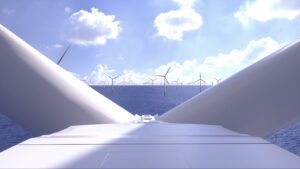The ACT is accelerating the shift from natural gas, with the territory’s gas utility, Evoenergy, conceding that it must assume that it will no longer connect new homes to the gas network and must look to the supply of renewable gas in its latest five-year gas infrastructure plan.
In a draft Gas Network Plan for 2021-2026, Evoenergy has flagged that it will also look to reduce the assumed asset-life of existing gas infrastructure in the ACT, and that it must start looking at ways to supply existing customers with zero emissions gas supplies.
The draft plan is the first step in a process that will culminate in a five-year regulatory plan being submitted to the Australian Energy Regulator for approval and will guide the development of the ACT gas network, including the increased use of renewable gas supplies within the network.
Evoenergy cites hydrogen, bio-methane and the production of renewable methane, as potential alternative gas supplies with zero associated emissions.
ACT minister for climate change and sustainability Shane Rattenbury welcomed the draft plan, saying that it showed that the phase-out of gas use in the ACT was gaining momentum, and would contribute towards the ACT’s target of zero net emissions by 2045.
“This Plan also shows that natural gas consumption has been falling in the region since 2011, and that will continue over the next five years,” ACT climate change minister Shane Rattenbury said.
“Buildings and neighbourhoods that are all-electric are now viable, cost-effective, and have the advantage of being able to use 100% renewable electricity. They are a win for consumers and the environment.”
Until recently, it was a mandatory requirement for gas infrastructure to be rolled out in all new Canberra residential developments. This raised concerns that suburbs were being lumped with gas infrastructure that was unneeded and would be underutilised due to rising gas prices, with the cost of such infrastructure being passed on to existing customers.
The ACT government moved to end this mandatory gas roll-out requirement in January, and committed to developing a plan for the complete phase-out of new and existing gas connections within the ACT by 2045. The ACT government has already started providing financial incentives for households to shift from gas to electric appliances within their homes.
The plan was met with some hesitation from Evoenergy, which is a 50:50 joint venture between the ACT government and Jemena, which saw the move as a threat to its gas business.
But the company said that it was confident that it would be able to meet the challenge of reshaping the ACT’s gas networks, ensuring that gas prices remained stable while also contributing to meeting the ACT government’s zero emissions targets.
“In this planning period we’ve looked closely at the ACT Government’s climate change strategy and what it means for how we operate and invest in the gas network in the short term,” Evoenergy acting general manager Fiona Wright said.
“We have nearly 160,000 customers connected to the gas network in the ACT and surrounding regions and we expect that number to continue to grow. We know that the community rely on the gas network for their everyday energy needs including cooking, hot water and space heating.”
“The ACT Government has said it will finalise its transition plan for the gas network by 2024 and until then, we have chosen to limit our investment in network expansion and minimise our forecast expenditure where possible. In 2021–26, we’re focused on providing the cheapest possible gas service without compromising safety and reliability.”
In its draft plan, Evoenergy recognised that the gas system would need to be transformed and acknowledged that it would need to work with the ACT government in managing the territory’s gas networks while it works to decarbonise. Evoenergy suggested it was therefore prudent to assume that there would be no new gas infrastructure rollouts in the ACT.
“An important issue for Evoenergy in the current policy environment is that there is a real possibility that gas network assets will become obsolete before the end of their engineering useful lives. This draft plan goes some way towards addressing this risk by assuming shorter lives for new assets, and assuming no rollout of the gas network into new ACT developments,” the Evoenergy draft plan says.
Evoenergy says that it will also work to reduce the emissions footprint of its existing gas network, including supporting households to reduce their gas use, as well as encouraging a shift towards using renewable gas within the gas network.
With the ACT purchasing all of its electricity consumption from renewable sources, the transition of gas appliances to electric alternatives presents an opportunity to both lower household costs as well as the territory’s greenhouse gas emissions.
The ACT Government therefore sees the phase-out of gas use as a key step towards achieving a target of reaching zero net emissions.
“Buildings and neighbourhoods that are all-electric are now viable, cost-effective, and have the advantage of being able to use 100% renewable electricity. They are a win for consumers and the environment,” Rattenbury added.
“This is a transition we can make in a way that saves households money. New, efficient electric appliances can provide residents with savings compared to equivalent gas appliances. For example, efficient reverse-cycle air conditioning can reduce household energy bills by around $500 per year compared to gas heating.”
A final version of the ACT gas infrastructure plan is expected to be delivered to the Australian Energy Regulator by the end of June.








